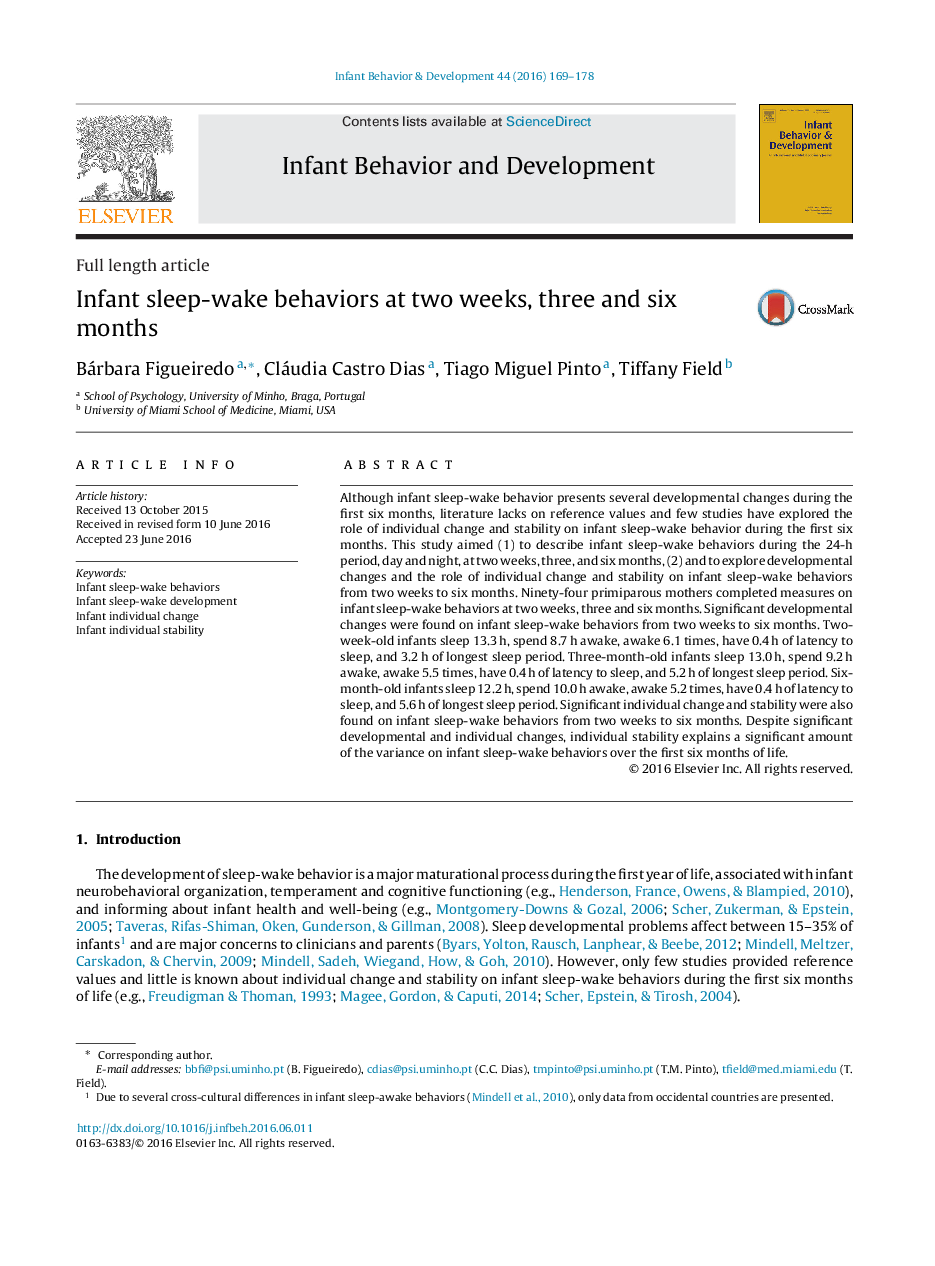| Article ID | Journal | Published Year | Pages | File Type |
|---|---|---|---|---|
| 7273218 | Infant Behavior and Development | 2016 | 10 Pages |
Abstract
Although infant sleep-wake behavior presents several developmental changes during the first six months, literature lacks on reference values and few studies have explored the role of individual change and stability on infant sleep-wake behavior during the first six months. This study aimed (1) to describe infant sleep-wake behaviors during the 24-h period, day and night, at two weeks, three, and six months, (2) and to explore developmental changes and the role of individual change and stability on infant sleep-wake behaviors from two weeks to six months. Ninety-four primiparous mothers completed measures on infant sleep-wake behaviors at two weeks, three and six months. Significant developmental changes were found on infant sleep-wake behaviors from two weeks to six months. Two-week-old infants sleep 13.3Â h, spend 8.7Â h awake, awake 6.1 times, have 0.4Â h of latency to sleep, and 3.2Â h of longest sleep period. Three-month-old infants sleep 13.0Â h, spend 9.2Â h awake, awake 5.5 times, have 0.4Â h of latency to sleep, and 5.2Â h of longest sleep period. Six-month-old infants sleep 12.2Â h, spend 10.0Â h awake, awake 5.2 times, have 0.4Â h of latency to sleep, and 5.6Â h of longest sleep period. Significant individual change and stability were also found on infant sleep-wake behaviors from two weeks to six months. Despite significant developmental and individual changes, individual stability explains a significant amount of the variance on infant sleep-wake behaviors over the first six months of life.
Related Topics
Life Sciences
Neuroscience
Behavioral Neuroscience
Authors
Bárbara Figueiredo, Cláudia Castro Dias, Tiago Miguel Pinto, Tiffany Field,
